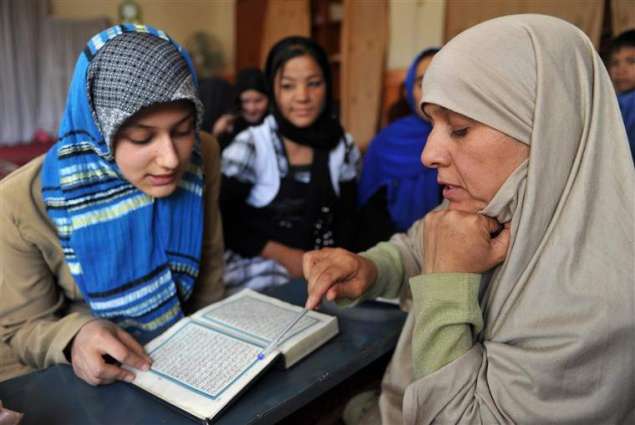The landmark peace agreement between the United States and the Taliban, a radical group known for its notorious violence against women, has been poorly communicated in terms of impact on Afghan women's rights, activists from the eastern Afghan province of Paktia have told Sputnik, expressing concerns that the deal could compromise achievements in promoting women's rights made over the past several years
KABUL (Pakistan Point News / Sputnik - 26th March, 2020) The landmark peace agreement between the United States and the Taliban, a radical group known for its notorious violence against women, has been poorly communicated in terms of impact on Afghan women's rights, activists from the eastern Afghan province of Paktia have told Sputnik, expressing concerns that the deal could compromise achievements in promoting women's rights made over the past several years.
Women's rights in Afghanistan have been suffering a harsh setback for some 18 years now in the course of warfare between the Afghan government and the Taliban. Abduction, rapes, intimidation and physical assault against women have been a typical insurgency method of the radical group. In late February, after many rounds of talks, the US and the Taliban reached an agreement which, among other things, addresses the reduction of violence.
"On the one hand, the Afghan government was not present at the time of signing of this agreement and on the other hand, there is no information about the agreement between the United States and the Taliban [on whether] women's rights are protected [in it]," Zarghona Himat, the head of the Afghan Women's Network in Paktia, told Sputnik.
Another local civil activist, Shahida, said in a conversation with Sputnik that the peace process would only be acceptable to Afghan women when it ensures that women's achievements of the past several years are protected, particularly with regard to "women [being] allowed to get education and work and have equal rights in the community."
But the most concerning issue for the activists, they said, were women in remote, rural areas. A notorious example of how they can be deprived of their rights are forced marriages, in which their families accept bribes.
"Unfortunately, in the remote areas, our sisters are not talking about what rights islam gives them and what rights they are given by the constitution," Zarmina, a women's rights activist, told Sputnik.
They believe that their rights are whatever their families say, she continued. Meanwhile, women in remote areas often face difficulties in accessing information about their rights and attaining justice, according to the activists from Paktia.
"Yes, we acknowledge that many of our sisters in remote areas do not have access to justice and there are difficulties, but now we have raised public awareness that women can enjoy their rights," Nasreen Oryakhel, the director of Paktia women's affairs department, told Sputnik.
The problem persists not only in Paktia but all across rural Afghanistan. Sputnik has learned that it is common for families to make choices for younger Afghan women in such essential matters as marriage, and if a girl attempts to oppose her family's will, she is taunted as shameless and can even be beaten to death.
Religious scholar Khawaja-ud-din Haqbayan, in turn, told Sputnik that women's rights are protected in Islam and the practice of forced marriages, in particular, is condemned.
The Taliban were in power in Afghanistan from 1996-2001, and their government denied women and girls access to education, employment, health care and freedom of movement. Since they were overthrown and the US-led foreign troops invaded in 2001, Afghan women have slowly managed to redeem their rights to education and health care, and have even made their way into politics, with the latter being not particularly encouraged by the government, however.
According to UN Women, out of 8 million Afghan students are currently enrolled in school. Girls account for 2.5 million, although the regular targeting of girls attending the school, a continued stigma against girls' education, and the growing influence of violent extremism are posing increased challenges to women's right to education.




